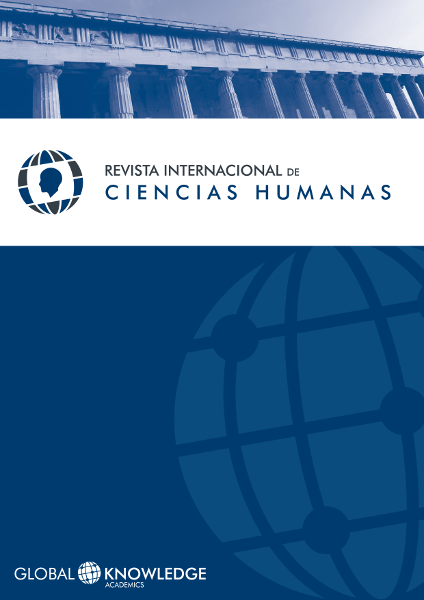Common Sense and the Humanistic Perspective
DOI:
https://doi.org/10.37467/gka-revhuman.v5.447Keywords:
Humanism, Polis, Renaissance, Common Sense, Cultural DiversityAbstract
This paper discusses the concept of common sense in the humanism. We´ll consider two proposals for the discussion on this concept: On the one hand, the classical conception of humanism considered in crisis associated with a lack of pluralism and inclusion from the ordinary to the contents and humanistic practice. On the other hand, the idea about that common sense in the context of the humanism is heterogeneous, so it recreates and includes in a new dialogue the everyday man by himself. The invitation from the United Nations about “Humanism, a new idea” (2011) is the context like a great call to refocus the discussion on practices derived from humanistic policy agreements in the world, integration projects between the classical traditions of the concept and dreams of interdisciplinary integration in the concert of nations. The path of analysis on the concept about the common sense in this proposal is a guide to review the rational framework as a concept in crisis. This is considering from several interpretations in a dialogic discussion, both the diversity debate about the nature of the concept as the depth of the social implications of the proposals.
References
Aristóteles. (2008). Acerca del Alma. Madrid, España: Gredos.
Buarque, C. (2011). Siete pistas para el porvenir de la humanidad. El correo de la UNESCO. París, Francia: UNESCO.
Buber, M., (1998). Yo y Tú. Madrid, España: Caparós.
Bunge, M. (2002). Crisis y reconstrucción de la filosofía. Barcelona, España: Gedisa.
Carroll, J. (1993). Humanism: The Wreck of Western Culture. Londres, Reino Unido: Fontana.
Certeau, M. de (2000). La invención de lo cotidiano. México: ITESO.
Cruz, M. y Vattimo, G. (1999). Pensar en el siglo. Madrid, España: Taurus.
Miranandola, P. della (1996). De la dignidad del hombre (1486). Madrid, España: Biblioteca Filosófica.
Dewey, J. (1950). Lógica: teoría de la investigación. Ciudad de México, México: FCE.
Ehrenfeld, D. (1981). The arrogance of Humanism. Oxford, Reino Unido: Galaxy.
Geertz, C. (1984). The interpretation of cultures. Nueva York, Estados Unidos: Basic Books.
Lipovetsky, G. (1993). La era de vacío. Barcelona, España: Anagrama.
Laclau, E. y Mouffe, C. (1985). Hegemonía y estrategia social. México: FCE.
Longxi, Z. (2012). The concept of humanity in an Age of Globalization. Taiwan, China: University Press.
Moscovici, S. (1989). El estudio de las representaciones sociales. París, Francia: Galimard.
Mungaray, M. (2011). La epistemología y sus dimensiones en la generación de conocimiento. Ciudad
de México, México: UABC.
Norman, R. (2004). On Humanism. Londres, Reino Unido: Routledge. DOI: https://doi.org/10.4324/9780203219911
Nussbaum, M. (2005). El cultivo de la humanidad: una defensa clásica de la reforma en la educación liberal. Barcelona, España: Paidós.
Platón. (1981). Diálogos [La República, Protágoras]. México: Porrúa.
Rusen, J. y Kozlarek, O. (2009). Humanismo en la era de la globalización. Buenos Aires, Argentina: Biblos.
Sabato, E. (2011). Sentido Común. Recuperado de: http://bibliotecaignoria.blogspot.com/2011/05/ernesto-sabato-sentidocomun.html#ixzz2QMJmDOXk
Seth, S. (2011). ¿A dónde va el humanismo? El correo de la UNESCO, París, Francia: UNESCO.
UNESCO. (2011). El correo de la UNESCO, 0(4). París, Francia.
Villoro, L. (1996). Creer, saber, conocer. Ciudad de México, México: Siglo XXI.
Wagner, W., Hayes, N. y Flores, F. (Ed). (2011). El discurso de lo cotidiano y el sentido común. Ciudad de México, México: Anthropos.
Downloads
Published
How to Cite
Issue
Section
License
Those authors who publish in this journal accept the following terms:
- Authors will keep the moral right of the work and they will transfer the commercial rights.
- After 1 year from publication, the work shall thereafter be open access online on our website, but will retain copyright.
- In the event that the authors wish to assign an Creative Commons (CC) license, they may request it by writing to publishing@eagora.org









